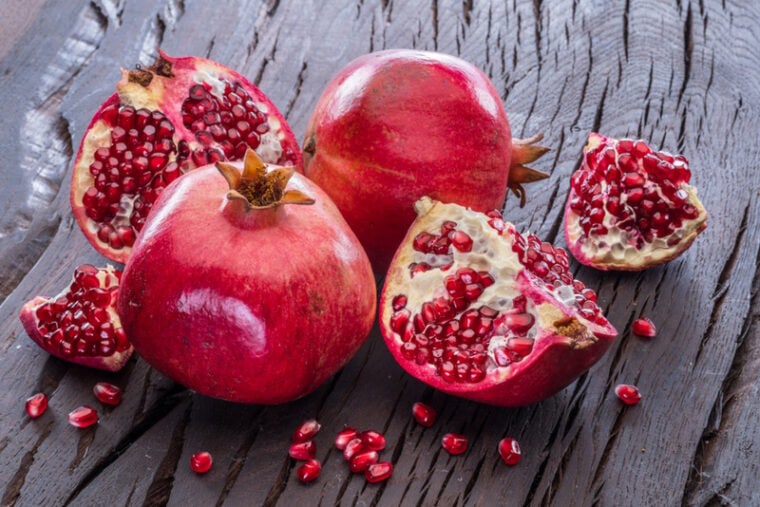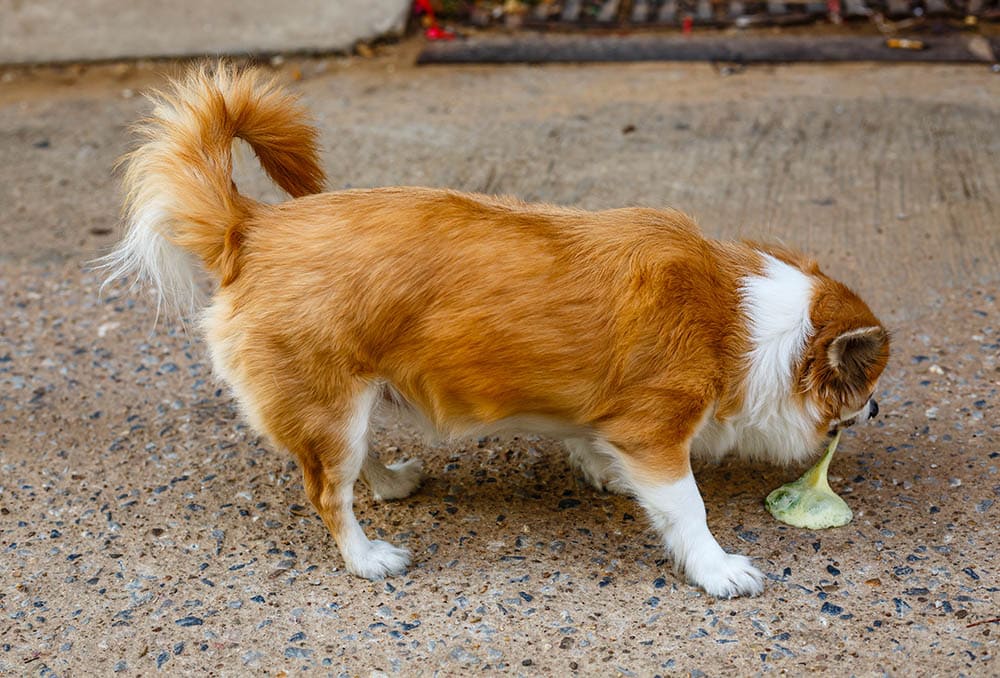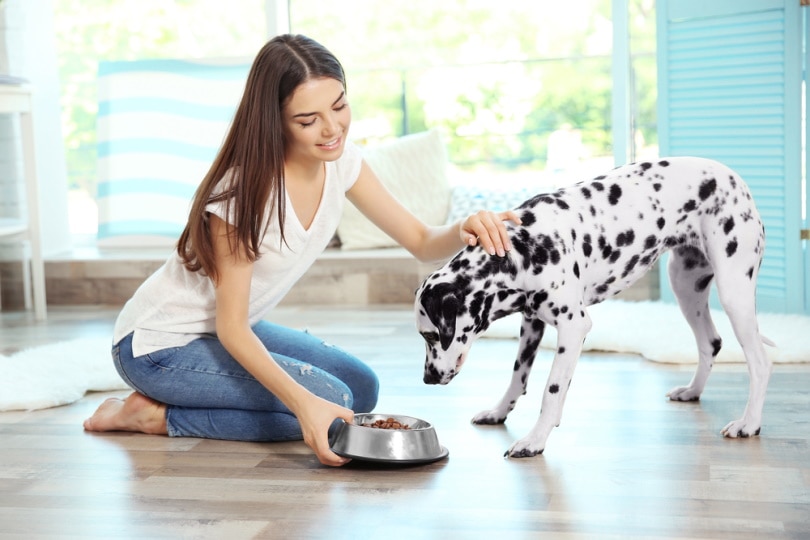
Click to Skip Ahead
While some dogs are very picky about what they eat, many will eat just about anything in front of them. As well as consuming their own meals, some will try and grab food from your plate or even from the kitchen units. While this shouldn’t prove too much of a problem with most fresh foods, pomegranate is one that you need to be mindful of.
Pomegranate fruit isn’t toxic to dogs, but a moderate to large amount of rind can potentially cause gastrointestinal blockage. There are also some potentially problematic components in the peel, bark, stem, and roots. Pomegranate is composed of the outer rind, the white pith, and the numerous arils (the red fruit with the tiny seed inside).
However, pomegranate extract does contain antioxidants and is said to help encourage healthy digestion.
Can Dogs Eat Pomegranates?
One fruit you should avoid feeding, at least when it is whole, is pomegranate. Pomegranate fruit is not toxic, which means if your dog eats a few arils it will not likely cause any problems. However, as well as the usual risks associated with high-sugar fruits, pomegranate rind can also cause gastrointestinal blockages. Therefore, whole pomegranates should not be fed to dogs.
The bark, stems and roots of pomegranates contain alkaloids which are known to cause liver damage in other species. This effect may be seen in dogs but ingestion of large amounts of bark, stem, or root is unlikely. The peel contains tannins which are also shown to be toxic in other species but again, ingestion of large enough amounts to cause illness is unlikely.
My Dog Has Eaten a Pomegranate, What Should I Do?
If your dog has eaten one or two arils you don’t need to worry. However, if your dog has accidentally got into a whole pomegranate or more, call your veterinarian for advice and monitor for any signs of vomiting, diarrhea, or other illness.

What About Pomegranate Extract?
Pomegranate extract is usually an extract of the skin of the fruit. And, while the peel should not be fed raw to dogs because it can lead to impaction, the extract may have some potential health benefits for dogs 1. In particular, it has a high concentration of antioxidants, which fight free radicals in the body and prevent oxidation.
The extract also may aid in hindgut fermentation, which is a healthy part of the digestive process in animals like dogs.
The 4 Tips for a Healthier Diet for Your Dog
Most dogs benefit from having meat as their primary protein source. Chicken and beef are the most common meat proteins for dogs, but other meats including turkey and lamb are also beneficial. Meat protein has high bioavailability, which means that your dog can process and use most of the nutrition.
1. Check Ingredients Yourself
Not all foods are created equally, and while some foods are ideal for one dog, they might not be the best choice for all dogs. Check ingredient lists yourself, look for protein ratio that is suitable for your dog and especially its activity levels and age, and, if you have been advised to avoid any ingredients by your vet, ensure they don’t appear in the ingredient list of the chosen food.

2. Add Some Fresh Fruit and Vegetables
You don’t have to adopt a completely natural or fresh diet, but instead of feeding highly processed treats, look for fruit and vegetables that your dog likes and that make healthy additions to their diet. Avoid toxic foods like raisins and grapes, and always ensure that you peel apples as well as remove their seeds.
3. Don’t Overfeed
Obesity is as big a problem in dogs as it is in people, and once your dog puts on weight, it is very difficult to shift the pounds. Check the manufacturer guidelines, weigh your dog, and determine an ideal weight. Gradually reduce food to a level that matches their target weight, and don’t forget to take into account any additional food and treats that you give over the day.

4. Always Provide Fresh Water
As well as food, your dog needs access to fresh water at all times. Fill the bowl whenever you go out, check it when you get back from a walk, and refresh the water in the morning when you get up. Staying on top of the water you give also means that you can monitor how much your dog is drinking, as drinking less or more can both be signs of certain illnesses.
Conclusion
Pomegranates are not toxic to dogs, but they should not be fed whole because the rind could cause obstructions of the bowel. However, the extract of the skin is rich in antioxidants and can help ensure healthy bowel movements, which is why pomegranate extract can be found in some commercial foods and may also be given, in moderation, to supplement your dog’s existing diet if your veterinarian approves.
Featured Image Credit: Valentyn Volkov, Shutterstock








